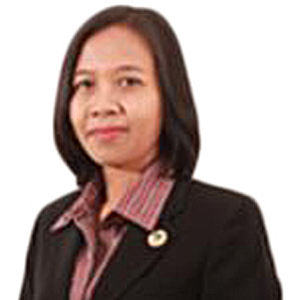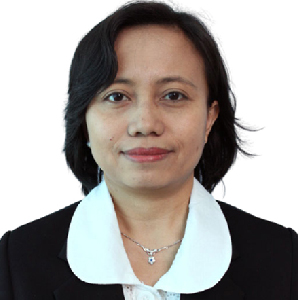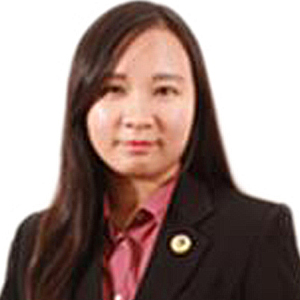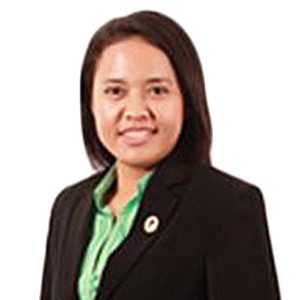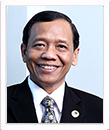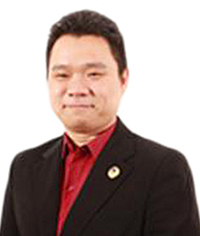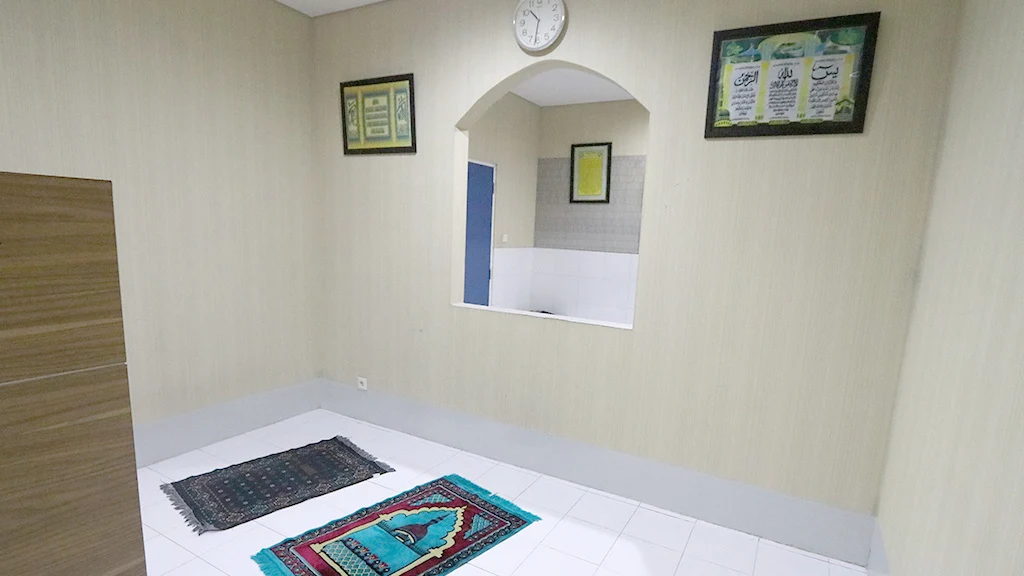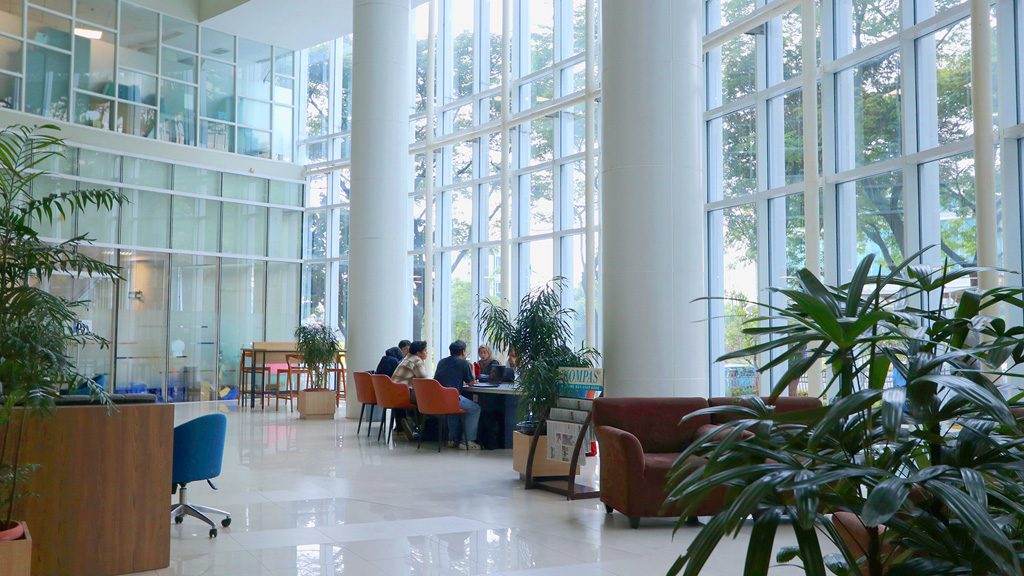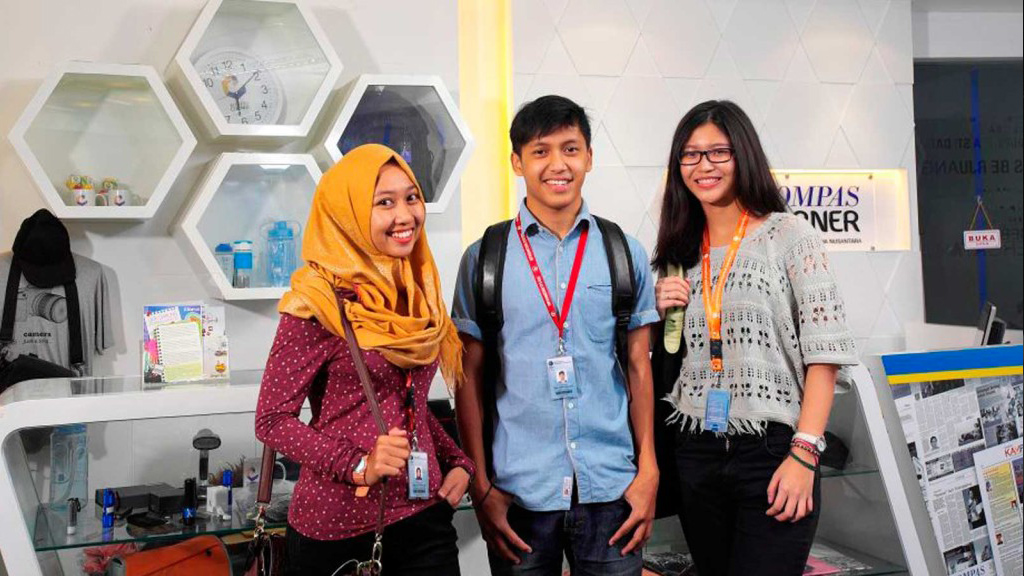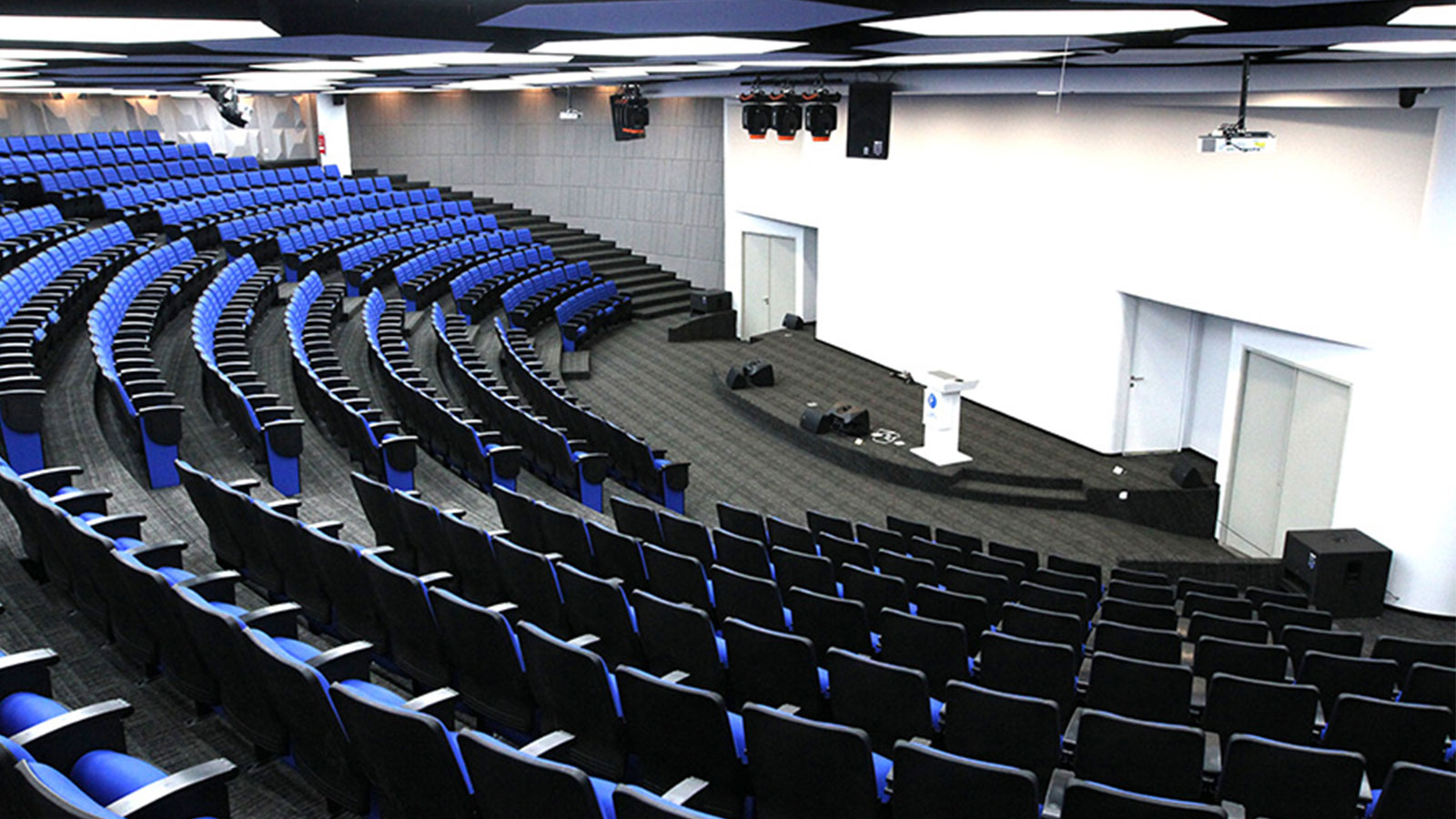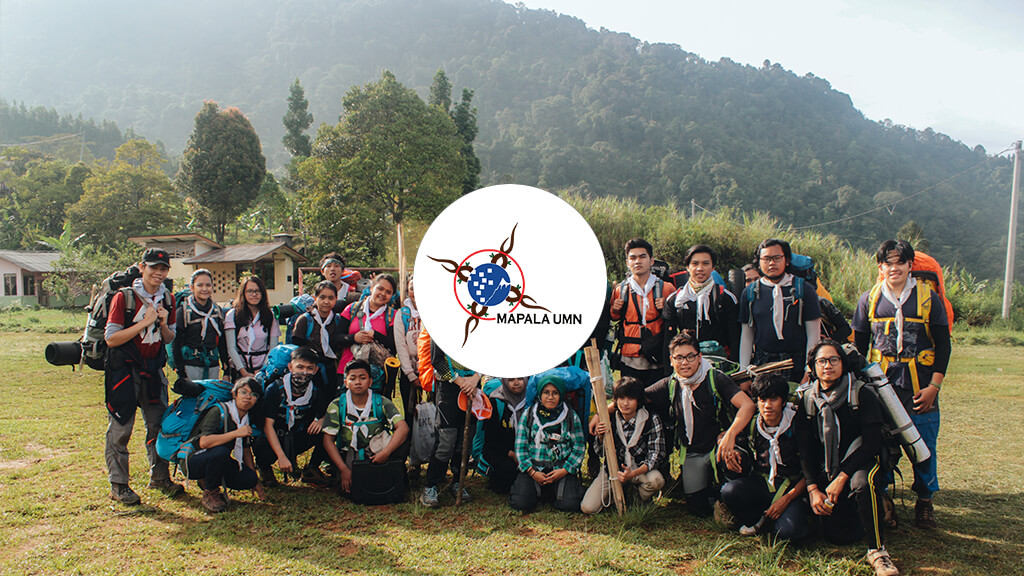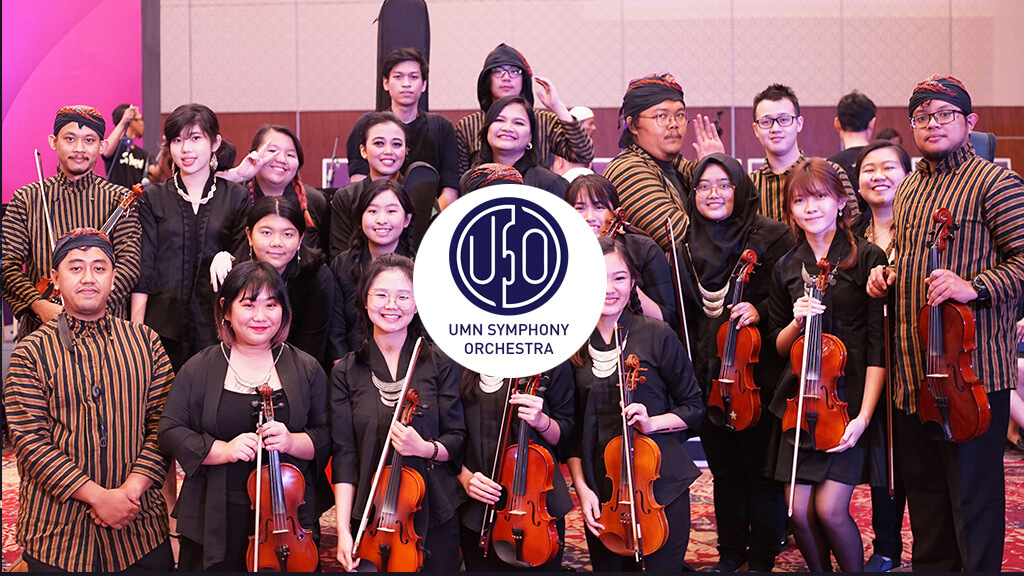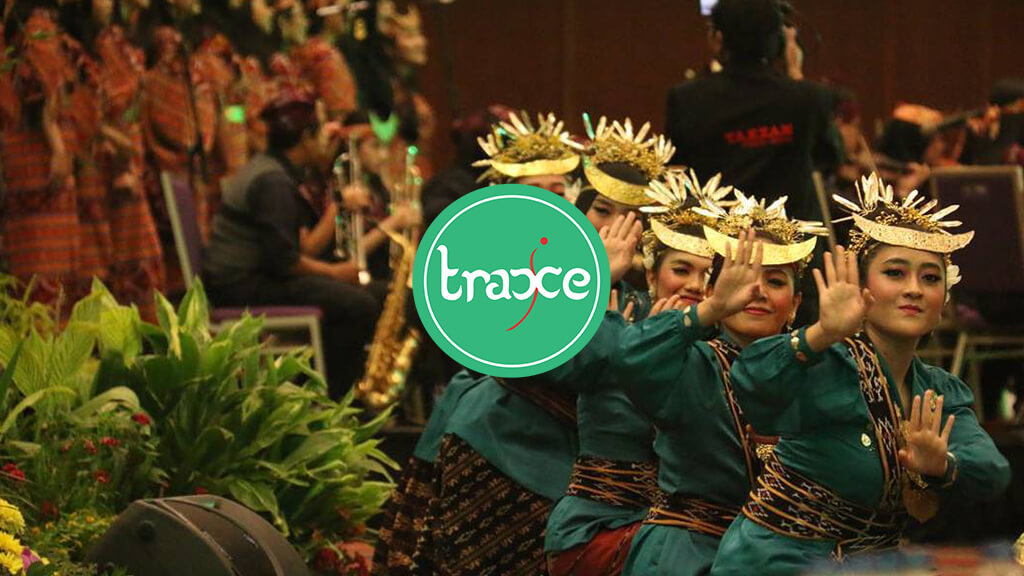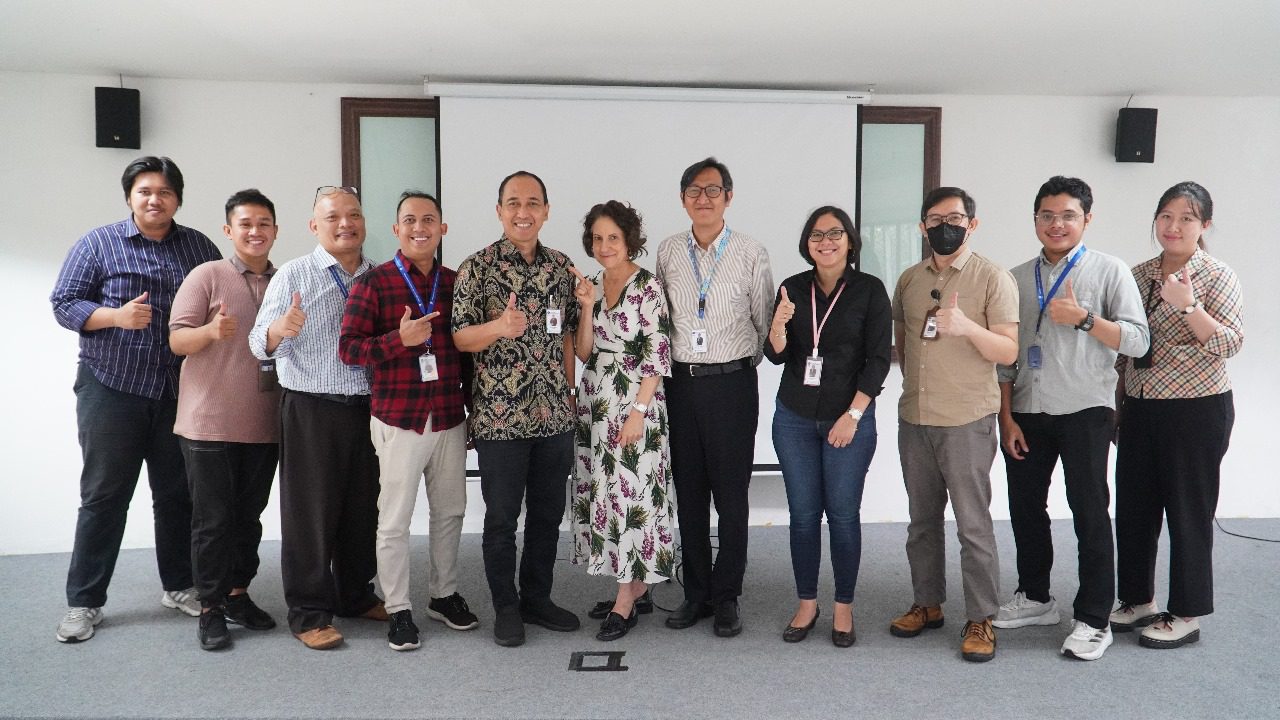Undergraduate Program in
Informatics
What is Informatics?
Informatics is a science that studies the basics and theories of computing. Through this study program, students will learn how to manage data and information that they can integrate into a system that can work automatically and is assisted by technology so as to create a tool that can simplify human life.
For example, with the development of today’s current technology, a car can run on its own without having to be driven by a driver, or the emergence of smart home technology that allows equipment and tools around the house to be controlled through a device very easily. These are some examples of the application of knowledge from informatics that you can find out in everyday life.
In the future, there are far more technologies that hasn’t been developed yet and in this study program you are able to make these changes.


Why should you choose
UMN Informatics?
The UMN Informatics study program focuses on student learning on artificial intelligence (Artificial Intelligence), Soft Engineering, and Cyber security. Students will be influenced and taught in-depth knowledge of the world of informatics from experts. Where the teaching staff are brought in from professionals who have expertise in that field. Besides this, the learning atmosphere is supported by various laboratory facilities that can be used by students to better focus and understand informatics as a whole. Through this, a balance is obtained between the learning of theory and practice.
ECTS Points Table
| ECTS Points | 146 SKS |
| Education Type | Bachelor Program |
| Duration | 4 years |
| Language | Bahasa Indonesia |
| Bachelor's Degree | Bachelor of Computer (S.Kom.) |
Vision & Mission
Vision
To become a leading Undergraduate Informatics Study Program that produces internationally-minded graduates who are competent in the field of computer science, entrepreneurial spirit and noble character.
Mission
- Organizing learning with the best technology and curriculum and supported by professional teaching staff.
- Carry out research activities in the field of Informatics to advance information science and technology.
- Carrying out community service activities based on information science and technology in the context of practicing science and technology.
Specialization / Focusing / Concentration
The UMN Informatics study program has several specializations that students can choose to study more deeply, including:
- Database Administration
Through a specialization in Database Administration, students can learn more deeply about data-based administration processes through a management system supported by Oracle which provides guidance and learning activities.
- Game Design and Development
Through a specialization in Game Design and Development, students can learn more deeply about the process of building and designing a game in the form of a mobile platform.
- Cyber Security
Through the Cyber Security specialization, students can learn more deeply about the process
- Game Design and Development
- Cyber Security (EC-Council)
- Database Administration (Oracle)
- Applied Computer Networking (Cisco)
- System Applications Products (SAP)
- Artificial Intelligence (Ai)
Career Prospect
UMN Informatics Study program graduates can work in various IT fields. Some potential occupations that can be taken are as follows:
- Data Scientist
- Machine Learning Engineer
- Full-stack Developer
- Software Engineer
- Network Engineer
- Application Developer
- System Analyst
- Data Engineer
- UI/UX Designer
- Security Architect
- Penetration Tester/ Ethical Hacker
- Technopreneur (Start-up Founder)
Career Support
UMN Informatics Study Program graduates can continue their studies with S2 or a master’s degree in the fields of Computer systems, Computer Engineering, Software Engineering, Computer science, and Electronic Engineering
Learning Attainment
Preparing students to become graduates with noble characteristic, entrepreneurial spirit and international insight in the fields of Artificial Intelligence, Cybersecurity, Software Engineering and Game Development.
Curriculum
UMN Informatics students will learn about programming in various forms and also artificial intelligence during their studies at Informatics UMN. Essentially, the UMN Informatics curriculum can be explained as follows:
Year 1: students will learn about the basics of programming: an introduction to multimedia technology, algorithms and data structures. In the first year, students will also learn about the architecture and organization of computers and digital systems.
Year 2: in the second year, students will learn more about programming which includes declarative programming, object-oriented programming and web programming. Then students also learn about the foundation of systems: both operating systems and data-based systems. Alongside this, they will also be introduced to software engineering and software project management as well as knowledge of computer security and networks.
Year 3: students will learn about the interaction between humans and computers and programming of mobile applications through the knowledge of artificial intelligence in the third year. Then throughout same year, they will also learn about corporate business processes and also technopreneurship to prepare them to be ready to work in the world of business industry in the future.
Year 4: students will be prepared with the knowledge of cross-platform mobile programming and thematic system projects.
In this fourth year, students will be engaged in internships at large companies and startups and is the year for them to prepare for their graduation.
Entry Requirement
- High school graduate majoring in Science
- SMK graduates majoring in Computer Engineering, Information Engineering, Computer and Network Engineering.
Partnership & Collaborations
The UMN Informatics study program has collaborated with several parties both nationally and internationally. At the national level, this study program collaborates with GRID from Japan in the field of machine learning & depth learning research. Then, collaborating to support teaching and learning activities such as apprenticeship programs, holding workshop seminars, to scholarship programs with several companies such as ECE-COUNCIL, CSO, HUAWEI, SAP, RENOM INFRASTRUCTURE INDONESIA, BCA, TOKOPEDIA, BUKALAPAK, OURACLE, ANABATIK and etc.
Furthermore, in the international sphere, collaborating with GRID from Japan in conducting research related to Machine Learning and Depth Learning. Adjacent to this, UMN Informatics has been registered as part of APTIKOM (Association of Computer and Informatics Higher Education).
Why should you choose
UMN Informatics?
The UMN Informatics study program focuses on student learning on artificial intelligence (Artificial Intelligence), Soft Engineering, and Cyber security. Students will be influenced and taught in-depth knowledge of the world of informatics from experts. Where the teaching staff are brought in from professionals who have expertise in that field. Besides this, the learning atmosphere is supported by various laboratory facilities that can be used by students to better focus and understand informatics as a whole. Through this, a balance is obtained between the learning of theory and practice.

ECTS Points Table
| ECTS Points | 146 SKS |
| Education Type | Bachelor Program |
| Duration | 4 years |
| Language | Bahasa Indonesia |
| Bachelor's Degree | Bachelor of Computer (S.Kom.) |
Career Prospect
UMN Informatics Study program graduates can work in various IT fields. Some potential occupations that can be taken are as follows:
- Data Scientist
- Machine Learning Engineer
- Full-stack Developer
- Software Engineer
- Security Architect
- Penetration Tester/ Ethical Hacker
- Technopreneur (Start-up Founder)
Career Support
UMN Informatics Study Program graduates can continue their studies with S2 or a master’s degree in the fields of Computer systems, Computer Engineering, Software Engineering, Computer science, and Electronic Engineering
Student Scholarships
UMN scholarship program is offered to high school students in 12th grade who have academic, sports, and artistic achievements while in 11th grade. In addition, UMN also offers the program to high school/vocational school students who won medals in the National and International Science Olympics. As a form of appreciation for the dedication of teachers and employees/ staff in educating the nation's children, UMN provides scholarships in the form of a 50% reduction in fees for teachers/principals and a 30% reduction in fees for children of the employees/staff in high schools/vocational schools (both public and private) who want to continue their education at UMN.
Entry Requirement
- High school graduate majoring in Science
- SMK graduates majoring in Computer Engineering, Information Engineering, Computer and Network Engineering.
Students are required to attend academic guidance meetings at least 3 times per semester. The schedule of the meetings will be provided by the respective academic supervisors. Students have to bring the academic guidance book for the meeting and they need to make sure that the academic supervisor signs it
Continuing Education Department (CED) adalah program pengembangan pendidikan di Universitas Multimedia Nusantara (UMN) yang merupakan bagian dari Grup Kompas Gramedia. Kami memiliki berbagai program dalam kursus bahasa, pengembangan manusia, Pusat Pengujian untuk sertifikasi nasional dan internasional, dan program pelatihan. CED UMN dirancang untuk memenuhi kebutuhan siswa sekolah menengah dan perguruan tinggi, serta masyarakat dan profesional.
Students are encouraged to find their own companies / agencies for their internships that align with the focus of the Informatics Study Program i.e. Industrial Automation. Information about available internships can be obtained from other students, social media, job fairs, advertisements in print or electronic media or even through the UMN Career Development Center (CDC).
To complete the Undergraduate Program (S-1) at Multimedia Nusantara University, students must prepare, present, and defend the thesis in front of the thesis examination board, in accordance with the provisions of the study program. The preparation of the thesis is done individually and the students can choose the supervisor directly provided that the selected supervisor agrees.
In connection with the New Normal regulations, UMN implements its teaching system in accordance with the Press Release of the Ministry of Education and Culture of the Republic of Indonesia Number 137/sipers/A6/VI/2020 concerning Guidelines for The Implementation of Learning in the School Year and New Academic Year during the COVID-19 Pandemic, Chapter of the Learning System in the Higher Education Environment.
To support the learning process, umn provided a complete and sophisticated college facility, according to industrial standards. Through the existence of the facility, students have been invited to be close to the industrial world since sitting in college and to have competence that matches the needs of the industry. That way, it will make it easier for umn students to find jobs, even before graduation.
Extracurricular Student Activities
In order to help students explore and develop their non-academic potentials, UMN also provides a variety of extra-curricular activities for students which is locally called UKM, Student Activity Unit.

SEE OTHER
UMN’S STUDENT ACTIVITIES
Penelitian Hibah DIKTI - Informatika
Rekapitulasi Penelitian Internal - Informatika
Daftar Kegiatan PKM Dosen
Rekapitulasi Inovasi Hak Cipta - Informatika
Rekapitulasi Inovasi Merek - Informatika
Training & Certification
- Palo Alto Network Certified Cyber Security
- Entry Level Technician (PCCET)
- IT Specialist – Artificial Intelligence – Cloud Computing – Computational Thinking (analyze data, recognize pattern in data using algorithmic thinking) – Cybersecurity – Data Analytic – Databases – Device Configuration and Management – HTML and CSS – HTML5 Application Development – Java – Javascript – Networking – Python – Software Developement
Information Literacy
Information literacy is an ability that individuals have in determining, searching, managing and evaluating information effectively and efficiently. This training is open to UMN active students. For further information, please contact: library.umn.ac.id
“I gained a lot of knowledge in terms of theory and practice while studying at UMN. Although many say the world of college and work is different, but the basic science that we use still comes from college and provides foundation for the future work. UMN provides the basic science very well. Also, UMN equips you with tools to think critically when analyzing a problem or needs of your customers.”
Marchelin Fau Hariono
Alumni Informatika 2012
IT Service Desk Analyst di Schlumberger
Informatics
Informatics is a science that studies the basics and theories of computing. Through this study program, students will learn how to manage data and information that they can integrate into a system that can work automatically and is assisted by technology so as to create a tool that can simplify human life.

